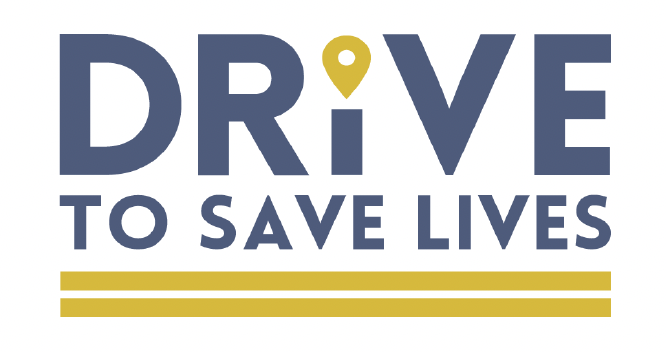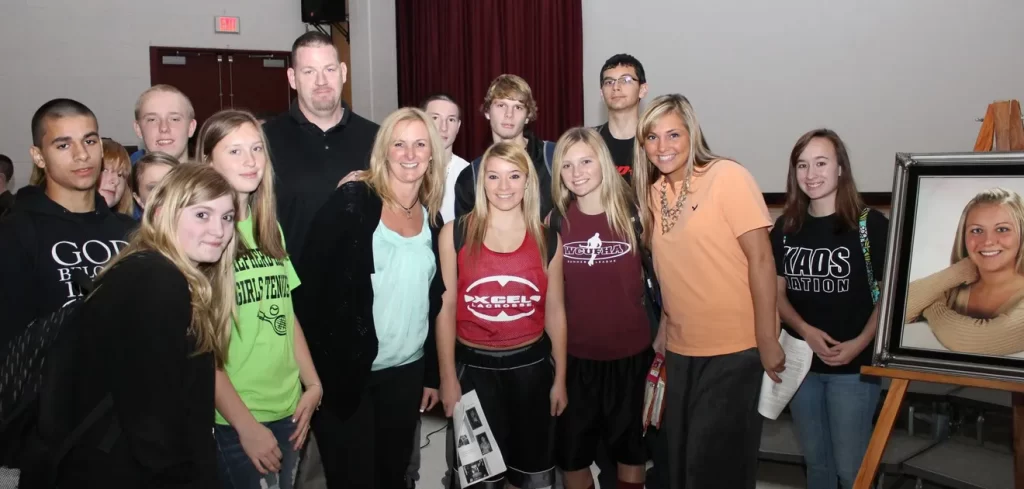Chris Sullivan and Kathi Meyer were seeking solace when they met at church in 2009.
Chris, a former NFL player, was recovering from drug and alcohol abuse that included an $800-a-day heroin habit. Kathi was grieving the death of her 17-year-old daughter, who had drowned after binge drinking just a couple of months before.
They married two years later.
Chris began accompanying Kathi when she gave talks to high school students about the poor choices that caused her daughter’s death, and he soon decided to tell his story as well.
Today, Mr. and Mrs. Sullivan are speakers for the Drive to Save Lives Tour. They shared their stories and message with the more than 1,000 students at Shepherd Hill Regional High School on Nov. 16.
“Their stories are tragic, yet they are courageous enough to share them with others to help students become more aware of how fragile their life is, and how much making one poor choice can take or alter their life,” teacher and program organizer Ashley Gustafson said.
Mr. Sullivan, an NFL player from 1996 to 2002, was a millionaire with a Super Bowl ring who lost everything but the ring.
“When I started making bad choices, I could not stop making bad choices. I never thought when I took that first pill I was starting an eight-year relationship,” he told students.
Mr. Sullivan made the right decisions throughout his school years even though he struggled with anxiety. He went to Boston College on a full scholarship, was drafted by the New England Patriots in 1996, and won a Super Bowl ring in 2001.
He went on to play for the Pittsburgh Steelers, where an injury led to his first experience with a narcotic pain medication. The anxiety relief it provided was alluring and the beginning of what he called an eight-year nightmare.
He was dismissed from the Steelers; was arrested five times for driving under the influence and possession of narcotics; totaled four cars; went into rehab 15 times; and dropped about 130 pounds from his 6-foot-5-inch frame.
“For eight years I was trying to kill myself,” he said. “A few years ago was the first time in my life I asked for help.”
He became sober in 2008, which was the year Kathi lost her daughter, Taylor, after a night of underage drinking with her friends.
Mrs. Sullivan began her message to students by dissolving barriers.
“I didn’t come here to preach to you. I’m not a teacher. I’m not an educator. I’m just Taylor’s mom,” she said.
The emotionally charged recount of Taylor’s last days included personal details that transformed an abstract story into one of familiarity for the students.
“She was no different than any of you. Her friends were no different than your friends. They just made terrible decisions and bad choices one night,” she said.
On an October 2008 afternoon, a friend used fake identification to buy alcohol for Taylor and her King Philip High School friends. Later that night, Taylor was among a group of teens drinking in the woods. During the night, she wandered away from the party but didn’t return home.
“I want you to picture 500 people searching for you — dogs, helicopters and divers — all searching,” she said.
Taylor had drowned in two feet of water. Her body was found three days later.
“Picture yourselves as one of Taylor’s friends that was there that night. Now picture the friend in the seat next to you and what it would be like if that seat was empty because your friend is gone,” Mrs. Sullivan said.
The second presentation that morning, for the school’s junior and senior class, ended with many in tears and lines formed to talk with the Sullivans.
Victoria, 16, said, “Just knowing the story moved me a lot. It changes everything from here on out. She definitely altered my life forever.”
Mrs. Sullivan said many Shepherd Hill students have since posted on Taylor’s memorial website.
“One of the students from Shepherd Hill actually reached to us via email and let us know that after the presentation they went right down to the psychologist’s office and asked for help,” she said.
According to the Drive to Save Lives Tour website, its speakers have reached millions of people at schools, colleges, community groups and government agencies across three continents.
Topics include impaired and reckless driving, substance abuse, underage drinking, teen suicide, dating violence and bullying.

